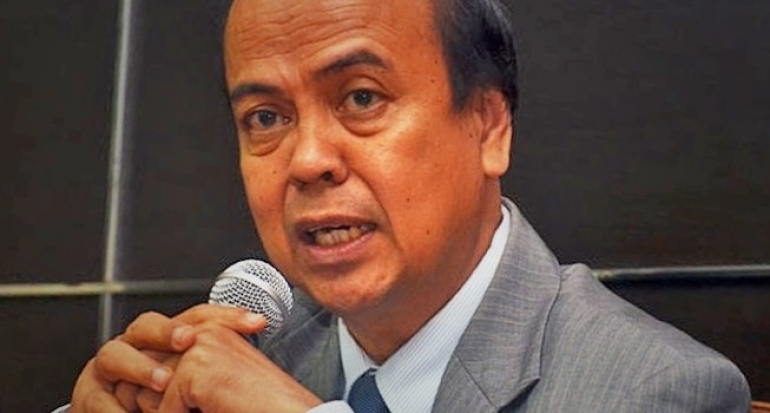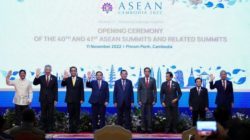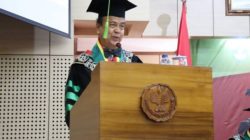By Hafid Abbas
International Consultant at SEAMEO RETRACT, Ho Chi Minh, 2014
At the 12th ASEAN Summit in January 2007, in Cebu, the Philippines, the Leaders of ASEAN affirmed their strong commitment to accelerate the establishment of an ASEAN Community by 2015 politically, economically and socio-culturally. Then at the 27th ASEAN Summit in Kuala Lumpur, Nov. 22nd, 2015, adopted ASEAN Community Vision 2025.
From education perspectives, one of the strategies to accelerate the establishment of such single community of nations is by the development of various centers of excellent under Southeast Asia Ministers of Education Organization (SEAMEO) management within the region.
Today, SEAMEO has 21 specialist institutions as canters of excellent that undertake training and research programs at various fields of education, science, and culture to serve all ASEAN member states as a single community of nations politically, economically, and culturally. For example, since its inception in 1967, Malaysia is the Regional Centre for Education in Science and Mathematics. This has been established in Penang, Malaysia since 1967, with the mandate to meet the needs of the SEAMEO Member Countries in developing science, mathematics and technology education programs.
However, out of the 21 centers, Sport Science Education Center (SSEC) is still not available in the region. This center appears to be greatly demanded to maximize the benefits of sport to achieve the vison and mission of ASEAN toward a single community of nations with the following reasons.
First, SSEC could be a supporting network to accelerate the achievement ASEAN Political-Security Community (APSC) blueprint by 2025 which shall be a united, inclusive and resilient community. ASEAN peoples shall live in a safe, harmonious and secure environment, embrace the values of tolerance and moderation as well as uphold ASEAN fundamental principles, shared values and norms.
This blueprint is in line with the core values of sport, such as: self-discipline, respect for one’s opponent, fair play, teamwork, and adherence to mutually agreed upon rules. These values help individuals and communities to build their capacity values and communication skills necessary to prevent and resolve conflict in their own lives. SSEC could then prepare an ASEAN platform as well-designed sport education activities that incorporate to the best values of sport.
As an example of sport value, is how the 2000 Sydney Summer Olympic Games of North and South Korean athletes could peacefully compete and interact at the Olympic Stadium for the first time in decades as two nations still technically at war at that time (Los Angeles Times, Sept. 16th, 2000).
Second, SSEC could be a research and community services network to speed up to the achievement of ASEAN Economic Community (AEC) blueprint by 2025 which shall be highly integrated and cohesive, competitive, innovative and dynamic; with enhanced connectivity and sectoral cooperation; and a more resilient, inclusive, and people-oriented, people-centred community, integrated with the global economy.
In line with the blueprint, in the Millennium Development Goals (MDGs) agenda to eradicate extreme poverty and hunger, SSEC could take a role to engage with socially excluded groups — helping them to build their human capital, connecting them with supports and services, and facilitating their social reintegration, address structural causes of poverty and social exclusion and to advocate for solutions.
Similarly on MDGs agenda which aims to achieve universal primary education, SSEC could contribute to prepare a platform to the encouragement and support for orphans, street children, children in remote areas and other vulnerable children to enroll in school.
Third, SSEC could be a network partner to accelerate the achievement of ASEAN Socio-Cultural Community (ASCC) blueprint by 2025 which shall open a world of opportunities to collectively deliver and fully realise human development, resiliency and sustainable development as we face new and emerging challenges together.
This blueprint is in line with the message of International Day of Sport for Development and Peace, adopted at the UN General Assembly on August 23rd, 2013, to proclaim April 6th as the International Day of Sport for Development and Peace.
As UN lead agency for Physical Education and Sport, UNESCO believes that sport is a powerful vehicle for social inclusion, gender equality and youth empowerment, human development and sustainable development.
SSEC could therefore be a prospective think tank network of UNESCO and ASEAN to explore the power of sport to strengthen social ties, promote peace, solidarity, mutual respect, share creative ways to improve our quality of life, and put sport as human rights to be respected and enforced worldwide.
Institutionalization
The 21 existing SEAMEO Centers across the region locate mostly at the relevant university at their host country. SEAMEO Tropical Medicine center, for example, is at Chulalongkron University in Bangkok.
With such modality, SSEC could be established at State University of Jakarta (UNJ) with these realities.
First, UNJ is widely recognized by other universities across the region for its reputation on sport competition at national, regional and international levels. For many years, UNJ is the destination for graduate students from the Philippines on Sport Science Education. Second, for many years consecutively, UNJ remains to stay at the top medal winners at various sport competitions. Totally, in 2019 for example, UNJ students and lecturers have collected 513 medals as various national, regional and international competition (UNJ RPJM Report 2020).
Similarly, at the previous Asian Games in 2018 for example, UNJ athletics could win 6 gold medals, 5 silver and 1 bronze. UNJ athletics as members of Indonesia delegation shares totally 12 medals or equal to 11.67 percent of its contribution to Indonesia total medal acquisition (31 gold medals, 24 silver and 48 bronze). This record then puts Indonesia at the top 4, stay after China, Japan and South Korea.
Third, if UNJ to be excluded from Indonesia on medal records, its rank is higher than Qatar, stay at the top rank 15 out of 46 participating countries at 2018 Asian Games. Similarly, if UNJ position to be excluded from Indonesia in ASEAN, its position is at the third after Thailand and Malaysia, higher than other 7 ASEAN countries and Timor Leste.
Lastly, UNJ has already a university sport stadium and a university training center, both are world class levels.
Hopefully, with the contribution of SSEC, ASEAN could fully achieve its collective dream to be a community of nations with One Vision, One Identity, and One Community by 2030.







